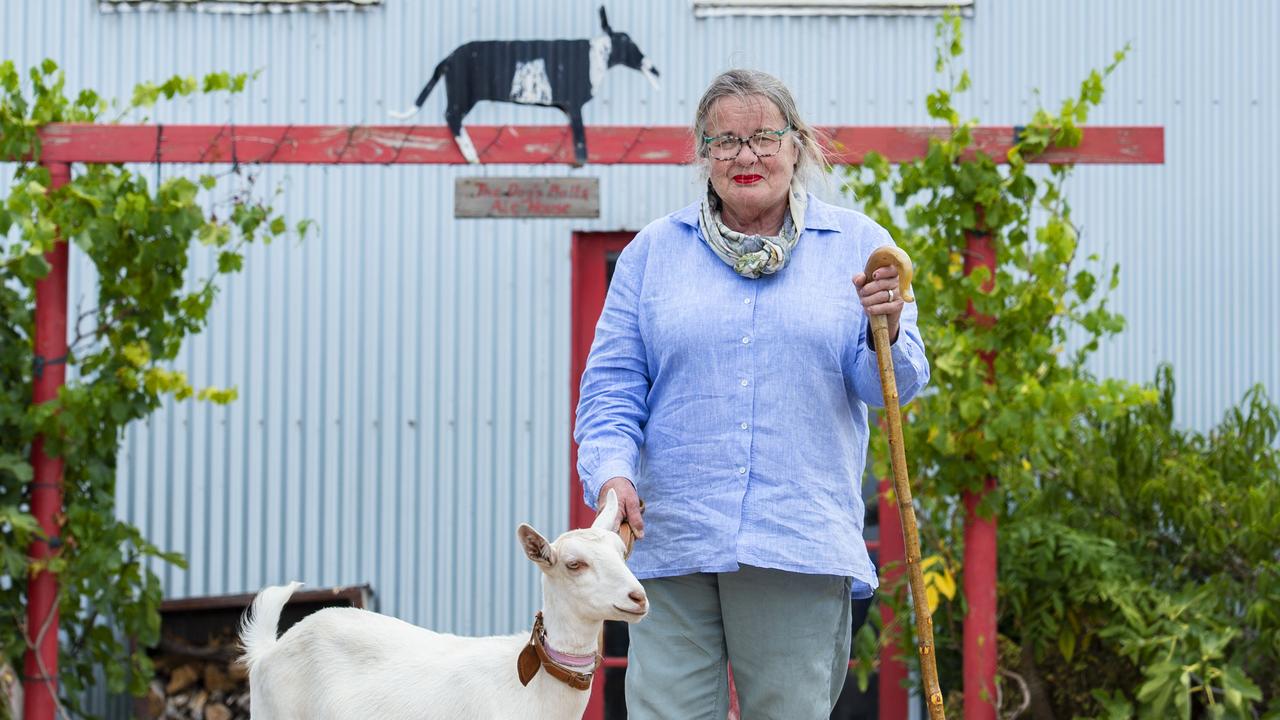Regional Australia Institute CEO Liz Ritchie promoting the country and women
A farm girl from Deniliquin who always wanted to live and work in the bush is driving changes so others can do just that. This is how Regional Australia Institute chief executive Liz Ritchie made her ambition a reality.

AS MUCH as she still loves to visit the family farm at Deniliquin, Liz Ritchie was never destined to be a farmer or to live in a quiet rural idyll.
From her office in Canberra, rubbing shoulders with politicians through to business and community leaders, Liz admits she has “always been chasing the dream of returning to the regions”.
As chief executive of the Regional Australia Institute, that “dream” has meant advocating for Australians to move to the regions and enjoy the good life.
“Unfortunately the issues of drought, bushfire and flooding have created the idea in Australians’ mind that the regions only offer a tough life and are not a place for future prosperity,” Liz says.
“In some ways we have denigrated the brand, but it’s not true and isn’t representative of all Australia, it’s one dimensional.
“RAI exists to ensure regional prosperity, to be a beacon of optimism for the regions. My dream is for industry to all come together to support regionalisation.”
RAI is the only national independent think tank on regional issues in Australia. Founded in 2011, it is a not-for-profit with a staff of eight, releasing research and using those findings to advocate for regions outside capital cities.
It is, the 41-year-old mother of a three-year-old daughter admits, a massive task.
“Regional Australia is vast and extremely diverse and for that reason we need to look at the macro issues of jobs, population, and liveability, which is all about services and infrastructure, all the facets that make a place attractive,” Liz says.
“All the sectors, including agriculture are well represented with tremendous leaders, so we work with them to share ideas and propel national issues we believe have been holding back the regions.
“Yes they’re big problems and require big solutions.”

It goes without saying that Liz is a big-picture thinker.
And she always was, right back to sitting around the family table, one of six children, contributing to the farm business, and even in her first job as the first festival director of the Deni Ute Muster.
“I was their first employee and it was the second year of the festival, which was run by volunteers,” says Liz.
“I had just finished my PR degree at RMIT and got a phone call offering me the job. I focused on the strategic plan, sponsorship and how to take a commercial idea and build it.”
As much as Liz made an impact on the role, she was destined for more greatness.
For two years she worked overseas, initially in event contracting for the Royal Horticultural Society in London, working on such events as the Chelsea Flower Show, followed by corporate sponsorship for the Manchester Commonwealth Games.
With that “regional dream” in mind, Liz’s career always had a rural undercurrent. For a time she worked for Meat and Livestock Australia, Country Racing Victoria and even did a stint in Echuca running the Rotary Steam, Horse and Vintage Rally.
She says she would have loved to have stayed in Echuca because the town showed her the “impact of being part of something greater than myself”.
But it was Liz’s eight year role as the Western Australia state director of the Committee for Economic Development of Australia — which includes more than 800 of Australia’s leading businesses, community organisations, government departments and academic institutions — that she says “opened my eyes” to where she could have a real impact on policy.
Since moving to the Regional Australia Institute in 2018, Liz says one of the organisation’s key focuses has been on launching a national campaign to “supercharge the regions”, to attract jobs and populations to regional towns, away from cities.
As tragic as COVID-19 has been to lives and livelihoods, in some ways she admits the pandemic has fast-tracked this campaign, which will be launched in March.
“I have always believed regional Australia is the ideal place to live, to raise a family and work. The nature of work has changed so rapidly during these two decades that the notion of a city-centric life will soon be redundant,” she says.
“At the RAI, we are leading a societal shift. We don’t want to be a nation of megacities.”
As vast as the challenge of her role at RAI is, Liz in 2018 was also the founding director of the Australian Gender Equality Council, the first body of its kind in the world.
Created to achieve gender equality in Australia, the council is a not-for-profit bringing together industry sectors.
“My first exposure to discrimination was at a business event with 30 men and I was the only female. I was skipped over, presumed to be administration support and not the voice for the entity I was working for,” Liz says.
“So in creating the AGEC, we’re asking what is the potential for our society if women were treated equally on all fronts, boards, leadership, pay, a whole range of measures.
“I would love to see a level playing field where my daughter has equal opportunities. It’s about being seen, heard, and having a voice.
“I always try to achieve something new, something that hasn’t been done before.”
Liz says in the midst of these roles she has little downtime, but says next on her agenda is something a little more achievable: Liz, her partner Tom and daughter Chloe would love to return to the regions full time.
MORE
SHEARER SHORTAGE LEADS TO HUGE PAYDAY


